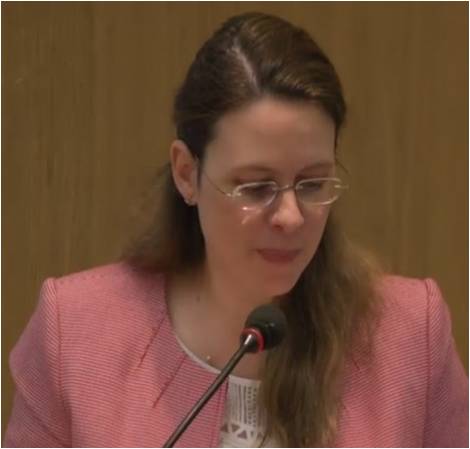
Panteion University was founded in 1930. It is the first higher education institution of Political Science in Greece and among the three oldest universities of Political Science in Europe. Panteion University consists of 4 schools and 9 academic departments, 13 postgraduate programmes, 3 research institutes, 18 research centres and 4 laboratories. The enrolled students are about 20,000, among which18,500 undergraduate and 1,500 graduate students. Teaching/academic and administrative/technical staff number is about 500.
In EnTrust, research work is conducted at the Department of Political Science and History. As an organic evolution of the first political science department in Greece, the Department of Political Science and History started functioning in the academic year 1998-1999. The department is devoted to the study and research of political science and modern history, with an emphasis on comparative politics, public and European policy, political sociology, social movements, minorities and migration, Media and political communication, political and electoral behaviour, economic theory and history, European, Balkan and Greek history. The curriculum promotes an interdisciplinary approach to the study of social and political phenomena. The courses offered allowing both a regional focus as well as encouraging the in-depth exploration of contemporary problems in an increasingly globalised world.
The Centre for Political Research (CPR) was established in 1989. The aims of the CPR are the design and implementation of political and sociological research, as well as the upgrade of teaching and research activities of the Department of Political Science and History. Among other activities, the CPR implements research projects, organises conferences, workshops, lectures and training seminars delving into theory, methods and techniques of a wide range of empirical and experimental social sciences research. CPR participates in the Social Data Network (SO.DA.NET.), the Greek research infrastructure for the social sciences. CPR, in collaboration with Athena Research and Innovation Center in Information, Communication and Knowledge Technologies, hosted the research project “Examining Xenophobia in Greece during the Economic Crisis: A Computational Prespective” (EEA Grants). In the previous years it has also participated in projects of research excellence (ARISTEIA II) and EU Framework Programs (THALIS).
Team members

Vasiliki Georgiadou is the principal investigator of the Greek team. She is a Professor of Political Science at the Department of Political Science and History, Panteion University, and the Director of the Centre for Political Research. She holds a PhD in Politics with distinction (summa cum laude) from the University of Münster, Germany (1989). Her current research interests focus on political behaviour, political radicalism and violent extremism. She is author (in German) of, among others, Non-capitalist Aspects of Development in Greece in the 19th Century (Frankfurt/M: Peter Lang, 1991) and (in Greek) of The Far Right and the Consequences of Consensus: Denmark, Norway, Netherlands, Switzerland, Austria, Germany (Athens: Kastaniotis, 2008) and The Far Right in Greece, 1965-2018 (Athens: Kastaniotis 2019). She was the Principal Investigator in the EEA Grant “Examining Xenophobia in Greece during the Economic Crisis” and a Research Group Leader in the THALIS research programme “Designing & Operating an Infrastructure for the Empirical Inquiry of Political & Social Radicalism in Greece” (EU Programme). Currently she is a co-Investigator in the LSE Research Grant “Low intensity violence in crisis-ridden Greece: Evidence from the radical right and the radical left” and co-coordinator of the SO.DA.NET. infrastructure. She is a member of the Editorial Board of Science and Society: Journal of Political and Moral Theory, Secretary General of the Hellenic Political Science Association (2010-2012), member of the Political Studies Association and the International Political Science Association and counsellor for scholarships of German Academic Exchange Service (DAAD). She has published 45 papers in peer-reviewed journals in Greek, German, English and French. Her publications appear among others in Electoral Studies, Party Politics, International Journal of Politics, Culture and Society, Zeitschrift für Politikwissenschaft, Revue des Sciences Sociales, Science and Society, The Greek Journal of Political Science.

Fani Kountouri is an Assistant Professor of Political Science-Political Communication at the Department of Political Science and History, Panteion University, Greece. She holds a PhD in Political Science (with distinction) from the University of Paris I Sorbonne (2006). The past years she was a research fellow at the National Centre of Social Research and she has been involved in projects on the political agenda, the profile of Greek MPs, the implication of digital uses and the framing process of public problems. Based on her research activities she has published two books and several articles in peer reviewed journals and she has participated in international conferences. She is author (in Greek) of two books Political Publicity and Power: Political Parties and Media during 2000’s (Athens: G. Dardanos, 2011) and Public Problems on Political Agenda (e-book, Kallipos, 2015). where she participated in several researches. She has published in Greek, French and English in edited volumes and journals such as Legislative Studies, Journal of Contemporary European Research, the Greek Journal of Political Science, the Greek review of Social Research. Her current research focus on political elites, political communication, framing process, new media and political mobilization. Since 2013 she is member of the teaching staff of the Department of Political Science and History, Panteion University, Greece. There she teaches courses on political science, political communication, public problems, public policies, and methods in political science.

Emmanouil Tsatsanis is Researcher at the Greek National Centre for Social Research (EKKE) and at the Hellenic Foundation for European and Foreign Policy (ELIAMEP). He holds a PhD from Washington State University. From 2012 to 2016 he was Visiting Assistant Professor at the Lisbon University Institute (ISCTE-IUL), where he maintains a research position. He has taught in various universities in Greece (University of Athens, University of Thessaloniki, Panteion University of Athens, University of Peloponnese), in the United States and in Morocco, and has been a visiting scholar at Sophia University in Tokyo and at the Juan March Advanced Center for Social Science Studies (CEACS) in Madrid. His research and teaching experience are located mainly in the subfield of Comparative Politics, with a focus on topics related to electoral behaviour, political identities, political representation and party systems. His work has been published in edited volumes and national and international peer-reviewed journals such as West European Politics, Party Politics, International Political Science Review, South European Society and Politics, Critical Sociology, Journal of Political Ideologies, Journal of Elections, Public Opinion and Parties, among others. He coordinates together with André Freire and Marco Lisi the research project ‘Crisis, Political Representation and Democratic Renewal: The Portuguese case in the Southern European context’ (2016-19) funded by the Portuguese Foundation for Research and Technology (FCT) and is co-editor of the forthcoming volumes Political Representation in Southern Europe and Latin America (Routledge) and Political Representation and Citizenship in Portugal: From Crisis to Renewal (Lexington Books).

Anastasia Kafe is a Research Associate at the Greek Diaspora Project – SEESOX. She has obtained her PhD in Political Science from Panteion University and holds an MA in Political Science and Sociology from the University of Athens. She has teaching experience in Electoral Sociology, Political Theory and Political Analysis. Her research experience concerns political behaviour, political radicalism and xenophobia, social movement and protest event analysis and data management for research infrastructures. She has worked as a researcher in the research programme So.Da.Net – European Strategy Forum for Research Infrastructures, in the project “Designing & Operating an Infrastructure for the Empirical Inquiry of Political & Social Radicalism in Greece”, in the project “Collective Action of Indignant Citizens in Greece: causes, content, agency, and implications for policy maker” and in the project “Examining xenophobia in Greece during the economic crisis: A computational perspective”, funded by the European Economic Area Financial Mechanism. She is co-author of the book Electoral Sociology and she has published several articles in the International Journal of Politics, Culture and Society, in Science and Society and in edited volumes. Her research interests lie in mixed methods, the study of electoral behaviour, the implications of economic voting, the discourse and strategy of extreme right parties, with a special focus on anti-immigrant behaviour and xenophobic attitudes and social movement studies.

Jenny Mavropoulou is a PhD Candidate at the Department of Political Science and History, Panteion University of Social and Political Sciences. Her research focuses on the vote for anti-establishment parties in the European elections and the North-South divide. She was affiliated with the Department of Political Science at the University of Mainz as a Visiting Research Fellow having been awarded a DAAD scholarship (Research Grant – 2019/2020). She has received two teaching assistant scholarships during the spring semesters of the 2020-2021 and 2021-2022 academic years. She holds an MA in Political Science with distinction from the University of Essex and a BA in Political Science and History from the Panteion University of Social and Political Sciences. She was a researcher in the ‘SoDaNet In Action’ research project – Funding: Operational Programme ‘Competitiveness, Entrepreneurship and Innovation’. Since 2018, she has been the technical responsible of Panteion University of Social and Political Sciences at the Clarin:el, National Infrastructure for Language Resources and Technologies in Greece. Her main research interests lie in Comparative European Politics, Western Far-Right Politics, Anti-establishment Parties, Electoral Behaviour and Methods in Social Sciences. She has published articles in peer reviewed journals (Greek and International), while in 2018 her working paper entitled ‘Mapping the far-right vote in the European electoral arena: The Greek far-right in cross-national perspective’ received the first award by the Greek Politics Specialist Group (GPSG) under the call for Paper Competition: Greece: From Economic Rescue to Recovery and Reform?

Maria Samara has studied International and European Economics and holds an MBA, from the Athens University of Economics and Business. She has more than 10 years in the management of EU funded projects, including dissemination and exploitation of project results. She has participated and organized several trainings, workshops and conferences, in the field of social sciences and the humanities. She has participated in surveys conducted by the National Hellenic Research Foundation, and in publications related to the gender equality in research, while she was employed there.

Nikos Klironomos is a graduate of the Department of Political Science and History of Panteion University of Political and Social Sciences with a distinction and is currently continuing his studies at the postgraduate level in the same department in “Political Sociology and Comparative Political Analysis”. In the past, he has also studied Informatics at the Department of Informatics of the Athens University of Economics and Business. In parallel with his studies he retains his personal involvement with Big Data Analysis and Social Data Science. He is currently working as a scientific collaborator of the National Center for Social Research (EKKE) and Panteion University as the administrator of the database of the Social Data Network (SoDaNet) within the project “SoDaNet in Action”. He has previously worked in the “Socioscope” database developed by the National Center for Social Research and has participated in various surveys conducted by the National Center for Social Research while he was employed there, either as research personnel or as a data administrator. His research interests include fields such as Political and Electoral Sociology, Political Elites but also Political Communication on issues that mainly concern the study of Social Media Networks, while he puts a lot of emphasis on the field of Research Methodology and especially on the modern methods of Big Data Analysis, as it is a rapidly growing field that is of great interest especially in combination with the methods of social and political sciences.

Eleni Ntokou is a graduate of the Department of Statistics and Insurance Science. She has experience in preparing and conducting interviews for research and the quantitative and qualitative analysis of research results. Currently, she is studying Data Science at Master’s level at the American College of Greece.
